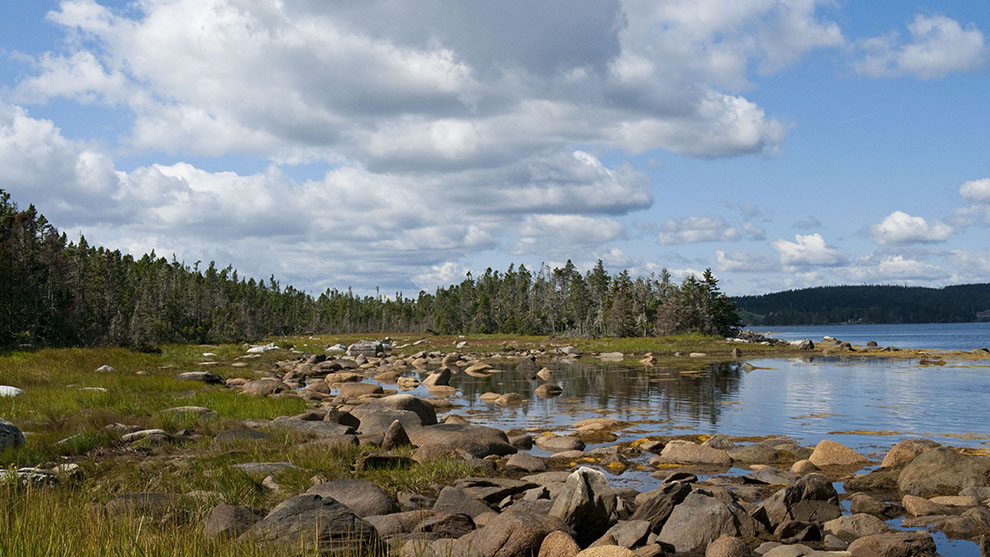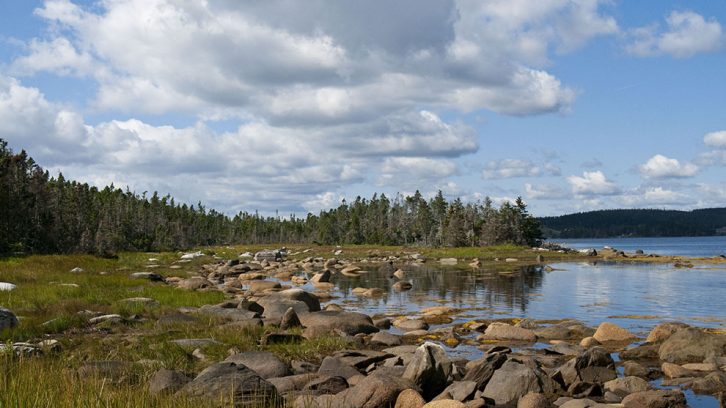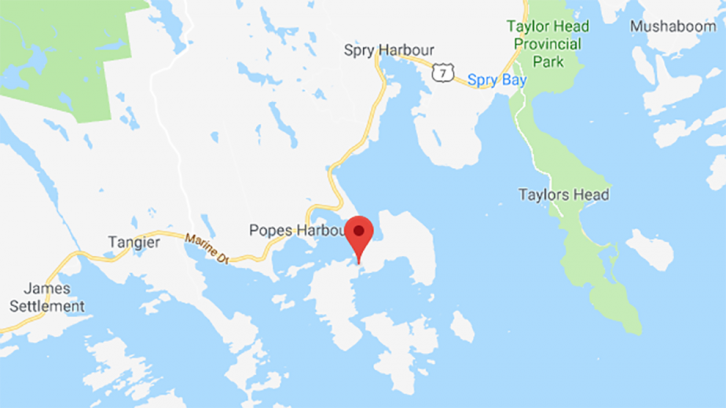Eastern Shore
Halifax Regional Municipality sells piece of Gerard Island to Nature Trust
Protected wilderness on 100 Wild Islands grows

caption
The central north coast of Gerard Island.
caption
The central north coast of Gerard Island.A piece of wilderness on Nova Scotia’s Eastern Shore was sold to the Nova Scotia Nature Trust for $1 by Halifax regional council on Tuesday.
The one-acre plot is in the middle of Gerard Island, about 100 km northeast of the Halifax peninsula. Council approved the sale in a unanimous vote.
“It’s an incredibly beautiful area and relatively untouched — forested, barren areas and bogs,” said Ross Firth, director of conservation at the Nature Trust, in an interview after the vote.
In 2015 regional council decided the one-acre plot wasn’t needed by the municipality and could be disposed of. Earlier this year, the municipality asked for non-profit organizations to submit proposals to buy the land.
Firth said the island has been a focal point of the Nature Trust’s 100 Wild Islands campaign. It would be a beautiful area for a home, he said, but the Nature Trust believes it’s important to protect coastal land from development.
“The properties that we own, we leave them in their natural state,” he said.
Only five per cent of Nova Scotia’s coastline is currently protected and 85 per cent is in private ownership, according to Firth. He said it’s important to have “representative habitats” that are open to the public.

caption
Gerard Island is off the coast of Popes Harbour, in Spry Bay.Firth said Gerard Island is accessible only by boat and is a popular destination for kayakers. There are no amenities on the island, but Firth said people are welcome to visit.
“We certainly don’t have an issue with people coming onto our property so long as it doesn’t negatively impact conservation,” he said.
Indigenous connection
Coun. Shawn Cleary asked on Tuesday if Indigenous groups were consulted or offered first rights of refusal when disposing of municipal land.
“Is there ever any thought, when property is going out, that we send a missive to the (Assembly of Nova Scotia Mi’kmaq Chiefs) or we send out to a local band in that area that this is available, do you want this land?” he said.
Municipal staff said calls for proposals are made public without any prior consultation with Indigenous people.
The Wild Islands Tourism Advancement Partnership is currently undertaking research into the cultural and archaeological history of the 100 Wild Islands. Firth said he wouldn’t be surprised if evidence of Mi’kmaq activity on Gerard Island was discovered.

